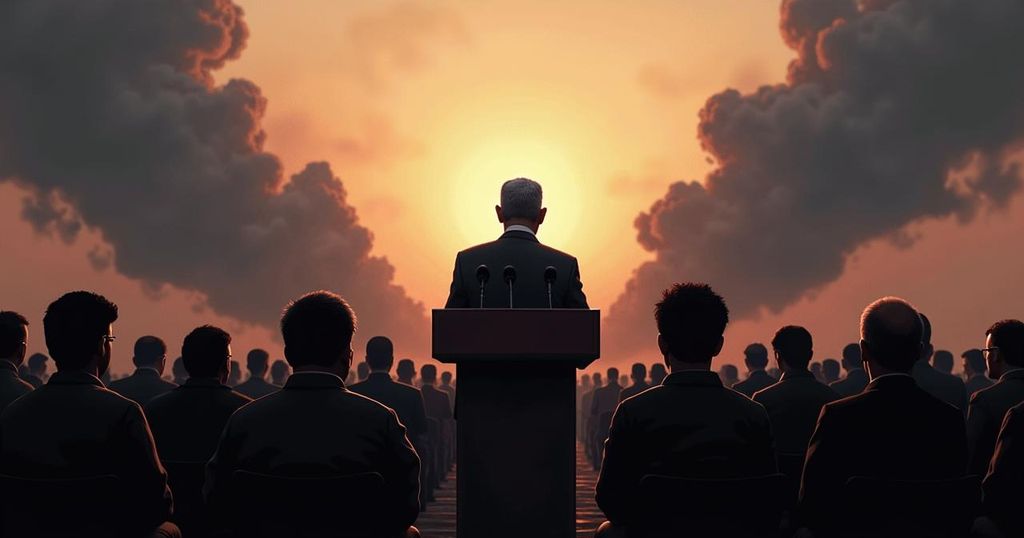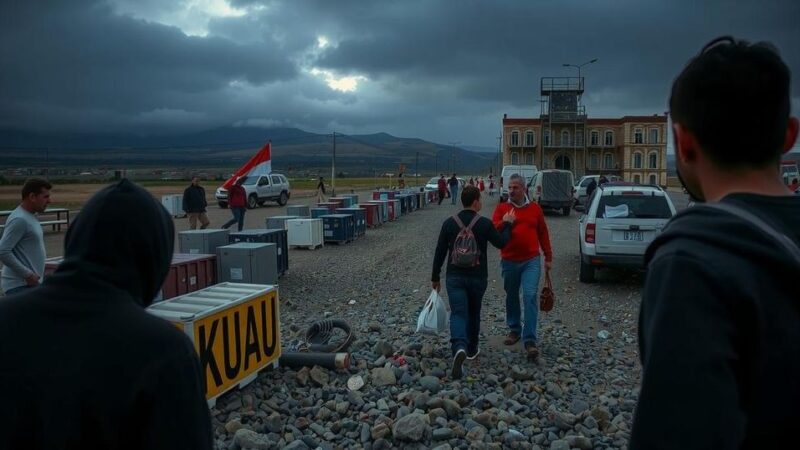In his address to the United Nations General Assembly, Israeli Prime Minister Benjamin Netanyahu proclaimed that Israel’s military offensive against Hezbollah will persist without immediate truce, warning Iran of Israel’s extensive reach in the Middle East. This escalates already heightened tensions amid severe casualties in the ongoing conflict, further complicated by the broader context of the Israel-Gaza war, which has caused immense destruction and humanitarian crises.
In a recent address to the United Nations General Assembly, Israeli Prime Minister Benjamin Netanyahu reaffirmed Israel’s commitment to its military operations against Hezbollah amidst escalating tensions in Lebanon. As Israeli forces have intensified their assault, resulting in substantial casualties, Netanyahu emphasized that Israel would not agree to a truce, indicating preparations for a possible ground invasion. He particularly highlighted Iran as a central threat, proclaiming that Israel’s capacity to respond extends throughout the Middle East as a measure of deterrence against Iranian influence. The conflict, which has already claimed over 600 lives in Lebanon, further escalated following a series of attacks aimed at eliminating key Hezbollah leaders. As exchanges of fire between the Israel Defense Forces and Hezbollah persist, concerns mount regarding the potential for wider regional conflict following the extensive violence observed since the onset of the Israel-Gaza war. Starting from an unprecedented cross-border assault by Hamas on October 7, which resulted in significant civilian casualties and hostages, Israel has engaged in a prolonged military campaign against Hamas, leading to significant human suffering, particularly in the Gaza Strip, compounded by severe humanitarian crises and widespread displacement. The involvement of the United States continues to play a complex role, as it maintains military support for Israel despite internal political disagreements. Netanyahu’s firm stance in his U.N. speech reflects not only the current military objectives but also Israel’s enduring geopolitical strategy in relation to Iran’s influence and the ongoing hostilities within the region.
The ongoing conflict between Israel and Hamas, along with tensions with Hezbollah, is rooted in decades of historical animosity and territorial disputes dating back to the establishment of the state of Israel in 1948. This latest escalation constitutes part of a broader narrative of conflict that includes attacks, military responses, international involvement, and humanitarian crises. The war in Gaza, now described as one of the most destructive in recent times, has led to devastating human consequences, provoking discussions on international law and the moral responsibilities of states involved in armed conflict.
In conclusion, Israeli Prime Minister Benjamin Netanyahu’s recent address to the United Nations underscores Israel’s unwavering commitment to continue its military campaign against Hezbollah, alongside heightened warnings directed at Iran. The backdrop of the Israel-Gaza war remains a compelling concern, accentuated by rising casualties and a complicated humanitarian situation in Gaza. The geopolitical dimensions of this conflict, particularly the support from allies such as the United States, further complicate prospects for peace and stability in the region.
Original Source: www.washingtonpost.com






